
This list couldn’t possibly ignore Final Fantasy VII, lest it be drowned under a flood of internet-hate and capitalised expletives. When FF7 was released in 1997, the idea that a playable character could be killed off was completely unfathomable to me. At the end of disc 1, the “Empire Strikes Back” moment occurs: Aerith is killed by Sephiroth.
Hold on a minute, though, I forgot to mention one thing: this is most definitely not the saddest death in FF7. Put down those torches and pitchforks and allow me to explain. Yes, having the main protagonist’s (Cloud) love-interest suddenly killed is shocking and indeed sad, but it does not reach the depths of emotion directed towards another character, namely Red XIII. The mysterious talking dog with a fiery tail only begins to open up about his past when reaching his home of Cosmo Mountain. We learn about how his mother died protecting the mountain from the Gi Tribe, and how he is angry and ashamed at his father abandoning her to die. His adopted grandfather Bugenhagen decides it’s time to show him the truth. Through a sealed door, he leads Red XIII and the party to a cave (an incredibly hard one at this point of the game) filled with ghosts of the Gi Tribe. Bugenhagen starts to explain that a single warrior held off the invading Gi, who would have otherwise overwhelmed the town. After defeating the dungeon boss, he discovers his father now turned to stone from Gi poison, immortalised in his defence of the mountain. Having absolved his shame for his father he resolves to help Cloud’s group to save the planet, and in a final heart-string pulling moment, tears begin to falls from his father’s petrified eyes (and mine).

Set in urban Hong Kong, the plot driving this open world action-adventure is genuinely captivating. Taking the role of Wei Shen, a Chinese-American police officer, the player goes undercover to learn the inner workings of the Sun On Yee Triad organisation while rekindling an old childhood friendship with Jackie Ma. Soon after being released from prison, Jackie arranges a meet up with Wei and Winston Chu, presenting them with the opportunity to join the Water Street Gang. Once accepted as a member, Wei proves his worth and quickly moves up the ranks as a valuable gang affiliate while Jackie remains a low-level associate and is more often than not a simple errand boy.
Towards the tail end of the story, there is a power struggle within the Sun On Yee organisation over who should become the new Chairman after the death of Uncle Po. After being in the gang for many years and always done with around crime, Jackie decides that he wants to leave the group and start a new fresh life. Unfortunately, things didn’t pan his way as Wei finds him hanging from ceiling pipes with his stomach slashed open at the hand of a rival gang. The death of Jackie really upset me as I felt attached to him with every new mission. The car trip conversations exhibited a likable and relatable character where you learn Jackie’s a misunderstood criminal, trying to find a way out of crime. Wei and Jackie work together throughout most of the game and it’s clear that Jackie had a lot of respect for Wei, and looked up to him like an older brother. May their bromance never be forgotten.
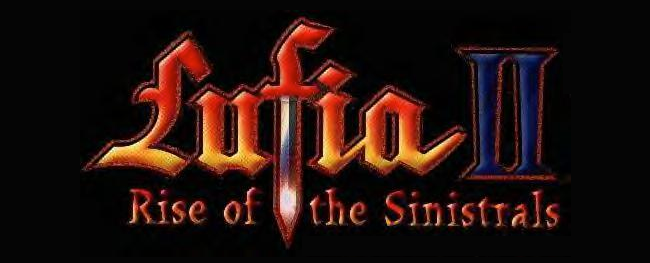
For me personally, there are not many video game deaths that have deeply effected me, let alone brought me to tears. Sure, there are great moments with Aeris(Aerith) from Final Fantasy VII, and Mareg from Grandia II, but to be honest, not too many others come to mind. Well, with one exception: Dekar in Lufia II – Rise of the Sinstrals. For those of you who haven’t played the game, Lufia II is a JRPG with an amazing storyline that takes place 100 years before the events of its predecessor. In turn, the player follows Maxim and his party across a massive landscape of dungeons, underwater caves, and a giant floating island of doom. Naturally, you pick up several new party members along the way; of which includes the coolest man in the history of gaming, Dekar.
What makes this “death” so traumatic, though, is the fact that after countless hours of his cheesy lines and awesome catch-phrases, and developing him into the strongest member of my party; he is unfairly snatched from you as he selflessly sacrifices himself to save everyone else from a boss called Illudra. I was only eight years old at time time, but I clearly remember that feeling of devastation to this very day. What makes it even more memorable, however, is that upon reaching Doom Island and being trapped with no escape, Dekar turns up, RIDING A WHALE no less, to swoop in and save the day. “You’re alive?!”, the party exclaims in shock. To which he simply responds, “Of course! I’m not only an excellent swordsman, but I’m also great at staying alive, you see.”
In my opinion, the saddest death in gaming doesn’t have to be permanent as the emotional impact of Dekar’s sacrifice was just as real at the time; with my love of the character only being re-affirmed when he returned to save the day some 20 hours later, of which there was no indication whatsoever. For those of you who haven’t played this game, I genuinely hope you seek it out and experience the whole thing. I can’t recommend it enough!
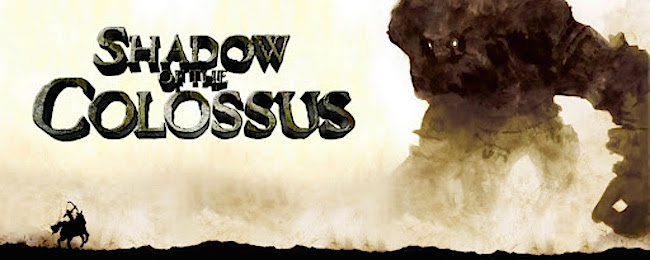
Shadow of the Colossus is already a sad, tragic journey that’s filled with loneliness. A journey to save a loved one, with only your horse, Agro as company. His “death” hits you hard and unexpectedly as he uses his final moments to fling you to safety, leaving you to helplessly watch him fall to his death. In most games, your horse acts as a tool, a mode of transportation, or even just an item. In Shadow of the Colossus, Agro is your only companion.
As you kill each Colossus, each (expect two) seemingly harmless, you’re attacked by a mysterious force, only to wake up back at the temple. The entire time you’re thinking “What I’m doing is wrong, but it’s to save someone I love… No one is getting hurt.” When Agro fell, I immediately felt responsible, and no matter how much you call for him, he’s not coming to help you in the final battle; leaving you to think… Was it worth the loss of my only friend?
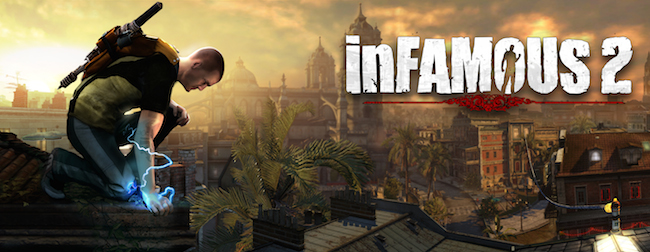
Whether you played as a hero or ran wild as a villain in inFamous 2, no expense was spared in the hypothetical ‘death budget .’ Closing in on the games conclusion, just about everyone was savouring their last breath – conduits, non-conduits, best friends, allies, enemies; you name it, they were dying in one of the two story lines. Inarguably, though, the most pertinent of these deaths took place on the ‘good’ side of the moral decision coin. Cole MacGrath, The Demon of Empire City himself, meets his ultimate demise. He dies a hero’s death though, sacrificing himself and all other conduits to save all the boring, powerless non-conduits from their little plague. The citizens were appreciative at least; Cole was declared the patron saint of New Marais, and a grand funeral was held in his honour. Zeke takes his best friend out to sea to say his last goodbyes and lay his best friend to rest.
As sad as this was, this was only one of Cole’s two theoretical deaths (well, three, if you include the first game). Cole’s second death has a name – inFamous Second Son. You see, in the evil ending of inFamous 2, Cole was alive and well, albeit an evil beast. But with Sucker Punch choosing to continue the Second Son narrative on from Cole’s death, the continuation of Cole’s evil counterpart will likely never be made. The literal death of the main character was sad, sure, but what upsets me far more is a lack of closure. Will the evil side of Cole’s story ever be told? Will I ever see Cole again? Will I have to settle for Zeke? These are the questions that keep me up at night.

Being late to the party as usual I only just got around to playing Dragon Age: Origins, and now I rue the day I became a Grey Warden. I love great RPGs and often find myself enthralled with the story and characters. Everything changed, though, with one small, velvety, red rose: Alistair’s rose. There was no fighting destiny, so I didn’t try, instead I endeavored to weave an epic tale that kept Alistair and I together; whatever the cost. I made choices I thought he’d approve of, and when Wynne voiced her negative opinion of us as a couple, I actually removed her from my party. Stay out of it Lady, you don’t understand; we’re in love! I should know by now that it’s impossible, but I thought I’d bent this RPG to my will and found myself nearing the end with the best outcome imaginable: Alistair would be king, I would be his queen, and we were even talking about little grey warden babies.
And then, the final battle happened. I stood helplessly as my time for necessary self-sacrifice neared; blissful that Alistair wanted to speak to me one last time – only to watch in horror as my beloved defeated the Archdemon and sacrificed himself for me! (And for Ferelden, but mostly me.) Rarely does a game stun me, but I was in shock with tear-blurred eyes as my lovingly crafted future was brutally destroyed along with my true love. I’m not ashamed to admit I cried, and as such, I can’t even consider playing DA: Awakening if he isn’t there beside me. Bioware just wants to watch the world burn, one RPG relationship at a time, and I’ll never forgive them for Alistair.
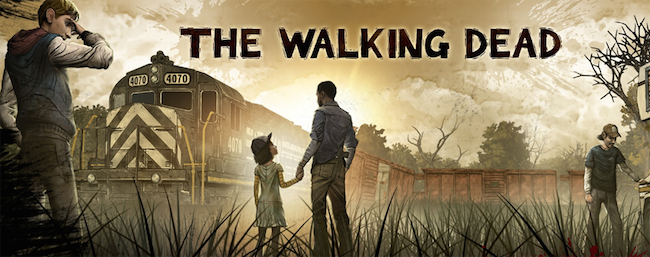
Videogame characters die all the time. It’s become such a common trope that triple-A titles have turned it into something we regularly expect. The Walking Dead decided to roll with it, in the true spirit of the source material, except its kill record rivals that of your average 80′s action movie and it makes you care about every single one. The series doesn’t stop tugging at the heartstrings between deaths, and the biggest emotional artery is Clementine; you always know that your choices are being watched, that the other characters are monitoring your actions and taking note, but none of that has nearly as much of an impact as “Clementine will remember that.”
Simply through playing, you’ll begin to personally feel a lot of the emotion in each episode, until eventually, you stop playing as Lee and start playing the way you, as yourself, would act in that same situation. It’s such an incredible bond between the two characters, as well; Telltale did an amazing job of cultivating a strong protector-ward partnership between the two characters, while still maintaining a “fatherly love” connection, as wel. So imagine how I felt when the last episode is spent madly scrambling to find her, with a clock ticking on my life span.
Inside of two real-time hours, Clementine is traumatised with kidnapping and seeing her dead, zombified parents, before watching her newly adopted father figure and protector die; the vessel through which you, yourself, have cared for her. Not just die, though, but turn into one of the very things you’ve both been fighting against this whole time. She’s losing her friend, you’re losing your ability to protect her, she probably shoots you (she did in my own game), and you can bet your sweet behind that Clementine will definitely remember that. Sadly, so do I.

My choice for the saddest death in gaming history has to be Cortana from the Halo Series. I felt that after having her by your side for so long as a partner throughout the series, you felt as if she was alive, and was a real person with feelings and emotions; even though she was an artificial intelligence. It was also a harsh shock to reality that at the end of Halo 4, even after everything Master Chief and Cortana go through; in the end she still falls subject to rampancy, which Master Chief promises to do everything in his power to stop Cortana from having this ill-fated ending. Alas, upon the “Mantle’s Approach” Cortana decides to make the ultimate sacrifice to save the human race, and to save the one person she has truly ever cared for. And so, in doing this, she gives up her existence.
I’m not ashamed to admit that her sacrifice brought tears to my eyes, especially when Cortana uses the last of her power to create a shield to protect Master Chief, and, in turn, create a life-sized hard light hologram of herself; which, for the very first time, allows her to physically touch Master Chief. Her final action before her existence is extinguished forever is to say three resounding words that strike deep with emotion “Welcome home, John.” This will be the one death in video game history that I felt on a deep emotional level, and I, as a player, mourned for the loss of such a monumental character in the series, and for the emotional toll it inflicted upon Master Chief.

When I first heard that THQ were declaring bankruptcy in 2012, the only thing I really cared about was the fate of Relic Entertainment. This was a company that made one of the finest sci-fi RTS series of all time, a plethora of 40K games that rocked my heretical casbah, and an unmatched WWII RTS with tactical depth rivalling a 90’s tabletop wargame of the same setting. This was a company dedicated to quality over quantity, and it showed with every game they made. Their IP, their polish, and even their less memorable titles garnered significant praise (“Impossible Creatures,” anyone?), and as such, I wished that they could have found a new home worthy of their talents. Alas, as Homeworld so painfully taught me, sadly, no amount of preparation can ready you for the worst.
Relic Entertainment was sold to Sega, who is responsible for bringing the Total War series to my hard drive. While the last few Total War games had been buggy, rushed messes, I figured that Relic would still be able to act independently of them. However, only three months after Relic Entertainment had been acquired, Sega went and sold the Homeworld IP to Gearbox. Seriously? The guys that brought you Borderlands, Duke Nukem Forever, and (by their powers combined) Aliens: Colonial Marines were going to let loose with Homeworld!? Did they even know that the word “strategy” existed?! And, in turn, what does this mean for the rest of Relic’s IP? Would Sega just wheel and deal another creation away without a second thought to how it might be depriving the developers?
It was unlikely Relic would ever be trusted with another 40K license with Sega too, the infamous baron of copyright and censorship scaring GW away with its ‘creative ownership.’ But hey, at least we got a new Company of Heroes, right? Perhaps, but that might well be the only fragment left of Relic Entertainment as I knew them.

Video games are still arguably striving to be taken seriously as artistic expression that’s aimed at mature adults. In film, emotional connections to events and characters are mostly taken for granted, whereas it’s often difficult for a video game character’s death to cause an emotional response without a strong story to immerse the player.
Valve Software has always strived to deliver a believable universe in the Half Life series, and went to great depths to develop a game engine that could accurately portray facial expressions, just so that they could tell a great story and make their characters believable and relatable. In Half-Life 2, Valve introduced a non-playable character called Alyx Vance. She’s a strong and believable female character that isn’t a damsel in distress, but still displays human vulnerability and believable emotions. Over the next three installments, Valve deliberately builds a strong connection between the player and Alyx, while also establishing a believable and warm relationship between her and her father, Eli Vance. Whom, in due course, the player will also develop a “fatherly” relationship with, as well.
However, at the end of Half-Life 2 Episode 2, just when you thought it was over; you get attacked by Advisors and witness one of gaming’s saddest deaths. Eli attacks an Advisor in an attempt to allow you and Alyx to continue the mission, but another Advisor restrains you both while one lifts Eli. He pleads with Alyx to look away; his voice pleading with fatherly concern for his daughter. You know what’s coming. Eli is killed right before your eyes, but you’re saved in the nick of time by Dog (a robot built by Eli to protect Alyx when she was little). The Advisor drops Eli’s lifeless body in front of you and Alyx runs over, crying. Her whispered words and sobbing as the screen slowly fades to black is what makes this scene so powerful, and it’s also why I picked this as the saddest death in gaming.

One of the main characters in Fire Emblem: Awakening is Chrom, who begins the game as second-in-line to the throne of Ylisse behind his older sister, Emmeryn; the current Exalt who was forced to take the throne shortly before her tenth birthday due to her father’s sudden death. Immediately, the story explains how different Emmeryn is from her father: she being gracious, kind, forgiving and a perpetuator of peace where her father was war-hungry. She had a difficult time ruling over the people as many of the citizens rejected her, afraid that she would follow her father’s footsteps. Instead, though, she brought an era of peace by bringing their troops home.
In Chapter 8, your characters learn that Emmeryn, who has been captured by Gangrel, the king of the opposing kingdom, is to be put to death so they hatch a plan to rescue her. Unfortunately, it all goes awry and Gangrel demands Chrom to give up the coveted Fire Emblem in exchange for his sister’s life. You are given the choice, but regardless of your decision, the result remains the same. In Chapter 9, appropriately titled Emmeryn, she sacrifices her life by free falling from the cliff she was held captive on in order to protect her family and her kingdom; knowing Chrom would die if he tried to save her, and that the Emblem was too important to give up.
Emmeryn’s death was sad, but at the same time, very impactful, as you see her actions truly reflect her desire for peace. Her sacrifice removed the difficult decision from the hands of her brother, and instead placed the burden upon herself. In doing this, though, she was looked upon as a martyr by those who were there to witness, including members of the opposing army; with many deserting soon after as they realised the war was pointless.

One death, which has been immortalised with the song “Mad World,” is that of Dom Santiago from Gears of War. After losing their parents, children, and brother in the events surrounding Emergence Day, Dom’s Wife (Maria) became distant, and one day leaves to find their children, but never returns. Dom searching for his wife, soon becomes the main plot of the games, and we eventually find Maria; beaten, tortured, emaciated, and near death. Maria, at that point, however, is almost an empty shell, and Dom decides to end her life, rather than let her suffer.
As these things usually go, the team find themselves surrounded by lambent, with no fuel, and no backup. At first, it seems that Dom is trying to escape, with no regard of his friends’ safety, and we feel betrayed by his hasty retreat. It’s not until Dom turns around and comes back, that we feel ashamed for doubting his actions. Mad World fades in, and Dom ends his life in a spectacular explosion with tears, fire, and imulsion; saving his friends from certain death, and reuniting himself with his wife and children. While the game continues on, we feel an empty place in our hearts; as the friend who played Dom in co-op, is now forced to select a different character.

Terranigma tells the story of Ark, a boy from the Underworld (literally, a plane of existence that’s inside the Earth) who hails from the peaceful village Crysta, who, against the Elder’s advice, literally opens the Pandora’s box in his basement, throwing the entire Underworld and Overworld out of balance, and wiping out all life on the surface world. He then must go on a mission to resurrect all life, from plants and trees to animals, and eventually humanity, at the cost of leaving behind all of his friends and family, his tranquil life in Crysta, and his love, Elle.
After experiencing, pain, betrayal, suffering, loss, and ultimately death itself (only to be resurrected by nothing short of the life force of everything he created, yes, the Jesus Christ metaphors run deep here), he is finally able return home. However, things are a little off… The village Elder reveals himself as Dark Gaia (the Devil), who had essentially planned his entire destiny. After a clash of epic proportions, Dark Gaia is defeated and Ark has restored peace and harmony… Or has he? Upon successfully creating Heaven and Earth, Ark returns to his village where he finds nothing but an empty, desolate hometown, where he learns in a heartbreaking twist of events that his defeating of Dark Gaia has destabilised the Underworld and that his hometown will soon vanish from existence. He is offered one last day of happiness, to enjoy the village as he remembers it, before drifting into eternal sleep where he watches humanity progress in his dreams. His only consolation is knowing that some day, he and Elle will be reunited in a future life in what makes for one of the most heart shattering endings of all time.
Ever since my first playthrough, I’ve forever been haunted by some of Arks’ heartbreaking last words: “Even if I have a grand home, with no-one to share, it’s meaningless..” In truth, I still cry my eyes out every. single. time.
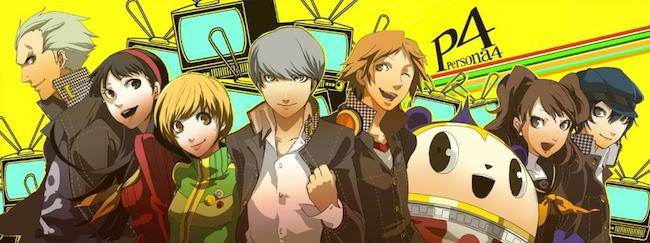
At first, Persona 4 might sound pretty weird: A Japanese high-school sim, crossed with a dungeon crawler, and injected with just a little bit of Pokemon fever. However, let me assure you, it’s actually one of the best RPGs ever created. I could write an entire article about what makes this game great, but one of it’s best features is, without a doubt, the cast of characters. In my opinion, they are some of the most well written characters out there, and I honestly think you would have to be a robot not to establish an emotional connection with at least one of them.
One of the game’s core mechanics is called a “Social Link,” in which you are required to develop friendships in order build your “Personas.” Which, to clarify, involves spending one-on-one time with each character, and, ultimately, helping them through a crisis of some sort. With that being said, though, there are two special characters worth elaborating on: Nanako, cousin and surrogate sister to the main character, and Teddie, an otherworldly creature who doesn’t know who or what he is. These Social Links, in particular, are special because both characters are naive and innocent, and in time, grow to love and admire the main character unconditionally. They’re both deeply touching relationships, and it’s very difficult not to feel personally responsible for their safety.
With this established, let me explain my choice. Towards the end of the game, Nanako is kidnapped by a serial killer. This in itself is traumatic enough as you have to fight desperately to reclaim her. However, while you’re able to save her from the killer, you are then forced to sit there helpless and watch her die in hospital. Of course, this event effects everyone greatly, but especially Teddie, who literally appears to fade from existence after this event. I do feel obligated to clarify that neither “deaths” were actually permanent, due to the supernatural elements of the narrative, but it didn’t matter. I honestly don’t think I’ve ever been hit that hard, emotionally, by any other game.










